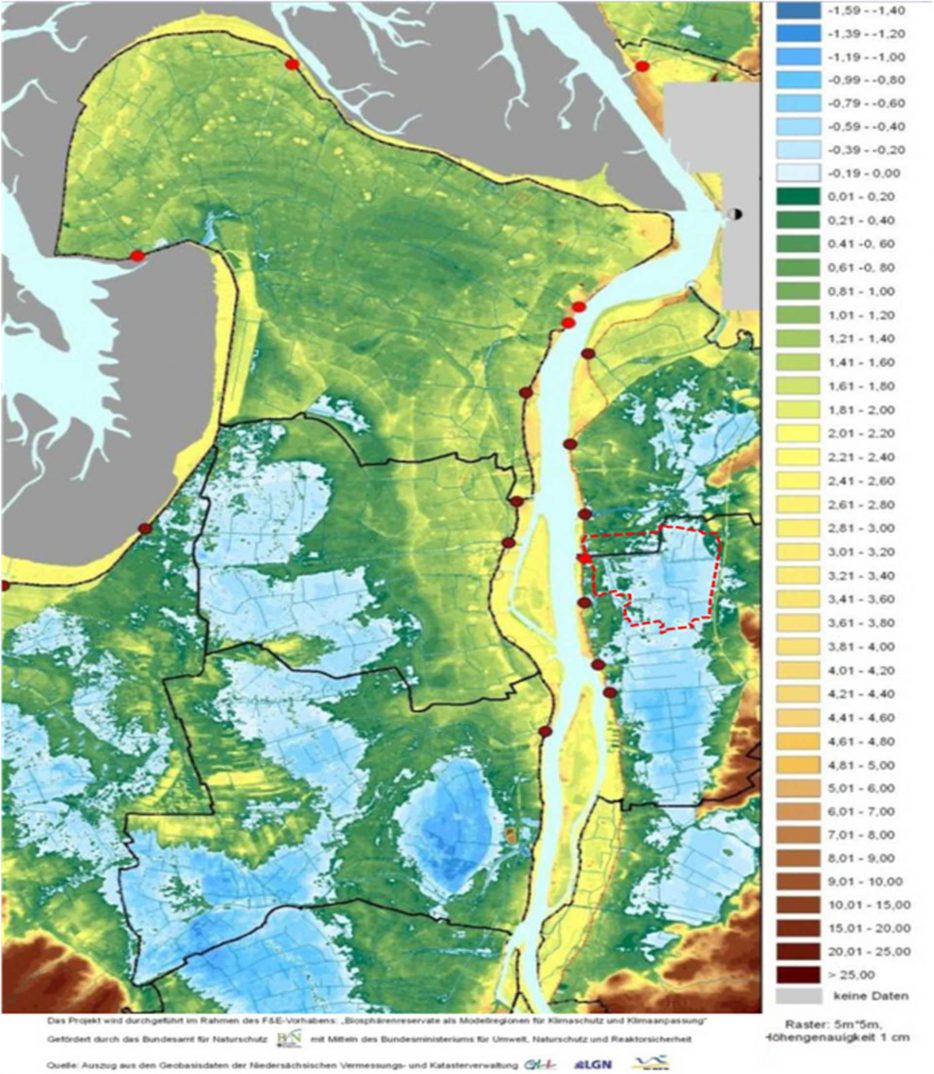Drepte Lowland – climate change adaptation
The search for suitable climate adaptation strategies is a highly topical issue for the North Sea coast in particular and consequently also for the North West Metropolitan Region as a coastal region. In view of the anticipated changes, these regions will be faced with long-term challenges in various sectors, such as coastal defence and nature conservation, the adaptation of water management systems and agriculture, the development of ports and shipping.
In cooperation with stakeholders from the sectors of agriculture and water management, coastal defence and nature conservation, an idea has been developed for a regional climate adaptation and development scheme in the Drepte lowlands which is aimed at achieving an acceptable balance between the creation of a highly diverse tidal landscape, nature conservation, agriculture and energy generation as well as tourism and recreation. In terms of design, scale and contents, this project is totally unique in Europe.
A preliminary study has been conducted to prepare the contents and organisation of the potential realisation of the idea of a tidal polder in the Drepte lowlands. This study identified the requirements and objectives of a subsequent feasibility study.
Tidal polder in the Drepte lowlands as climate adaptation measure in the Lower Weser area
The central economic and ecological objectives of the project idea were:
- To enable marsh growth resulting from sedimentation to combat tectonic subsidence and in parallel to the rise in sea levels
- To improve flood protection and test new coastal defence strategies
- To promote climate protection by re-waterlogging bog habitats and creating new carbon sinks
- To create new opportunities for interim agricultural use thanks to marsh plants and energy crops during the sedimentation phase
- To create new opportunities for recreation and tourism by providing typical regional tidal landscapes for visitors to see and experience
- To create new scope for water management (dams & reservoirs)
- To promote nature conservation by contributing to NATURA 2000 European network of protected areas, to the EU Water Framework Directive and via compensatory mitigation measures
Conclusions of the preliminary study
The preliminary study concluded that sufficient sediment is available in the River Weser at the level of the Drepte lowlands to permit the area in question to build up enough sediment through near-natural processes. Potential solutions have to be found for the – at least temporarily – conflicting interests of agriculture and nature conservation. Both the farmers involved as well as the conservationists pointed out that the time has come to investigate and promote potential adaptation strategies which go beyond the ordinary concepts of conventional coastal defence.
In conducting this study, the parties involved have taken promising steps towards overcoming the existing conflicts of interests and cooperating to find innovative potential solutions to a problematic future issue.
